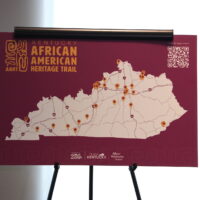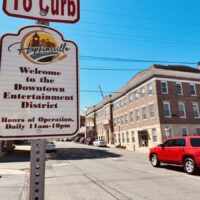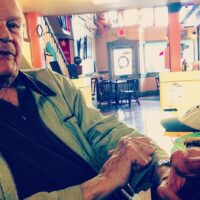Two opposing views of giving Jennie Stuart Health over to the larger hospital group Deaconess of Evansville, Indiana, were heard Wednesday evening during the first open meeting on the proposal. Discussions did not appear to change the minds of those in attendance — at least not among the 20 or so people who spoke during the hourlong session at Jennie Stuart. Roughly 100 people were in attendance.
Proponents see a Deaconess deal as a strategic move needed for long-term viability and to ensure Jennie Stuart has enough capital to pay for essential upgrades in technology and other aspects of the hospital.
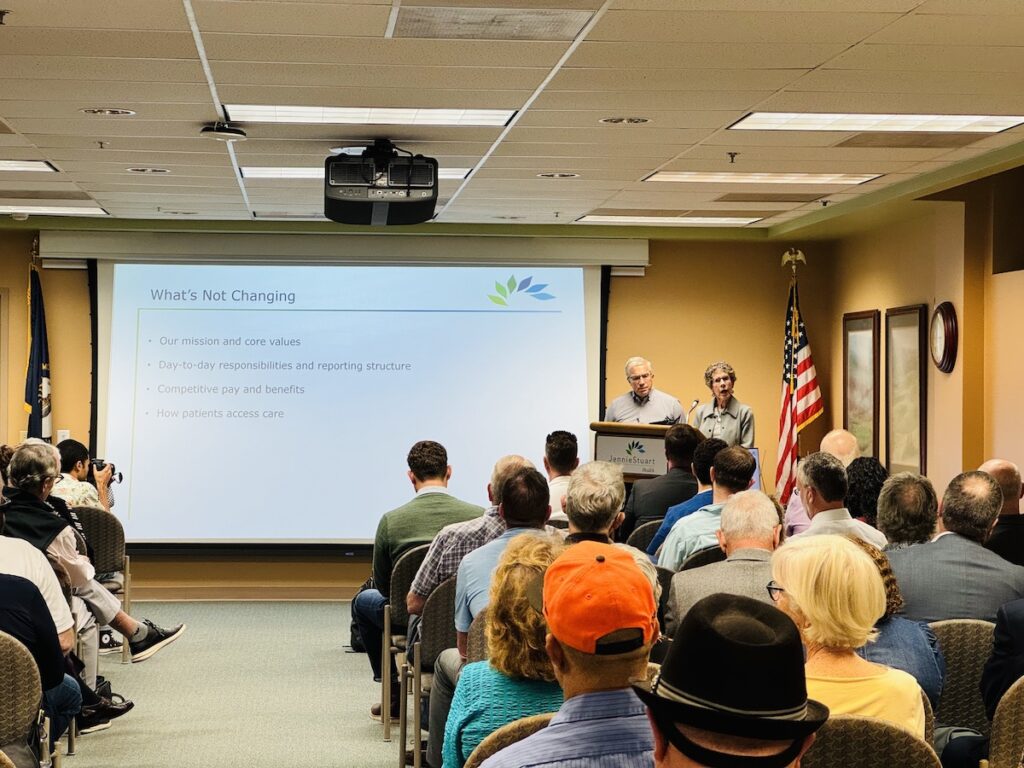
Opponents believe the board is giving away a community-held asset, with estimated equity of at least $140 million, and that Hopkinsville will lose local control of the hospital.
Board chair Leslie Carroll and others representing Jennie Stuart outlined the hospital’s financial challenges in the face of information technology shortcomings and the need to upgrade costly software for electronic health records, generally known as EHR. A search for better technology that tracks medical records, billing and other operations eventually led to a board decision to seek a “more fully integrated partnership,” said Carroll, who explained the board’s steps in a slide presentation. Deaconess emerged as the best partner, she said.
“The Jennie Stuart leadership team has done a remarkable job navigating this environment but the fact is that our hospital is unable to make the investments needed to improve the quality of care and secure our long-term future,” Carroll said. “The status quo is simply not sustainable.”
Dr. Matthew Robinson, a surgeon who serves on the board, said Jennie Stuart has struggled with an EHR system from Altera Digital Health, which was implemented in late 2022.
“Altera frankly has just not lived up to what they had promised us,” he said, adding, “It’s a struggle on a daily basis” for all of the hospital’s medical providers.
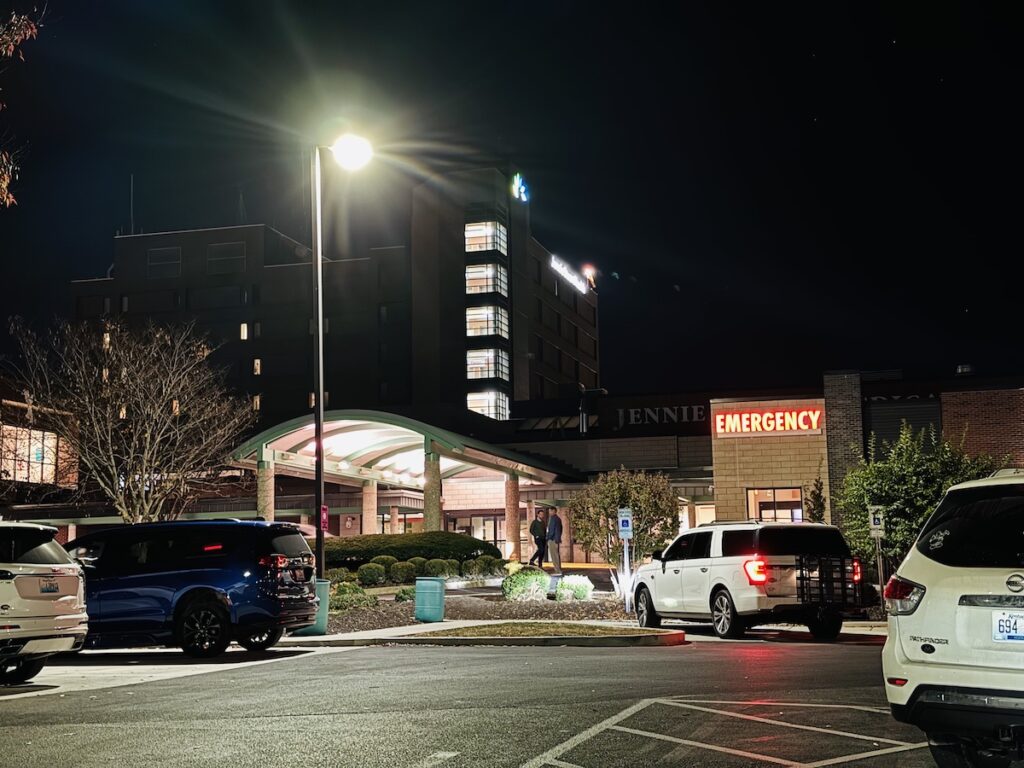
Ultimately, the board wanted to purchase software from a company called Epic Systems, one of the largest tech companies in the U.S. It would cost an estimated $40 million to $60 million for Jennie Stuart, as an independent hospital, to purchase the software and support, Robinson estimated.
“We just didn’t have the money to do that. But partnering with Deaconess gets us Epic. They have promised a very expedited deployment of Epic that once everything is finalized we could have it up and running in six to nine months,” he said.
The board signed a letter of intent to join Deaconess Health, officials from both hospitals announced Sept. 23.
Now Jennie Stuart and Deaconess are in a process of due diligence to evaluate the terms of the deal and finalize details.
“What makes Jennie Stuart special will not change should we ultimately reach an agreement to integrate with Deaconess,” said board vice chair Hollis White.
He said Deaconess is agreeing to retain all Jennie Stuart employees who are in “good standing” at comparable or greater compensation and benefits. The hospital, its clinics and its foundation will all remain open. Deaconess will contribute $5 million to Jennie Stuart’s foundation, he said.
“We are taking our time to make sure we are very thorough in our review,” said White.
Carroll, when pressed to pinpoint when the board will vote on agreement with Deaconess, said the decision will occur on Dec. 2. It will be a vote of the full board, she said.
It fell to Carroll and White to respond to most of the questions from community members, many of whom were frustrated by a lack of detail in their responses. Several times, the board members said they couldn’t provide specifics because the information would come later in the “definitive agreement.”
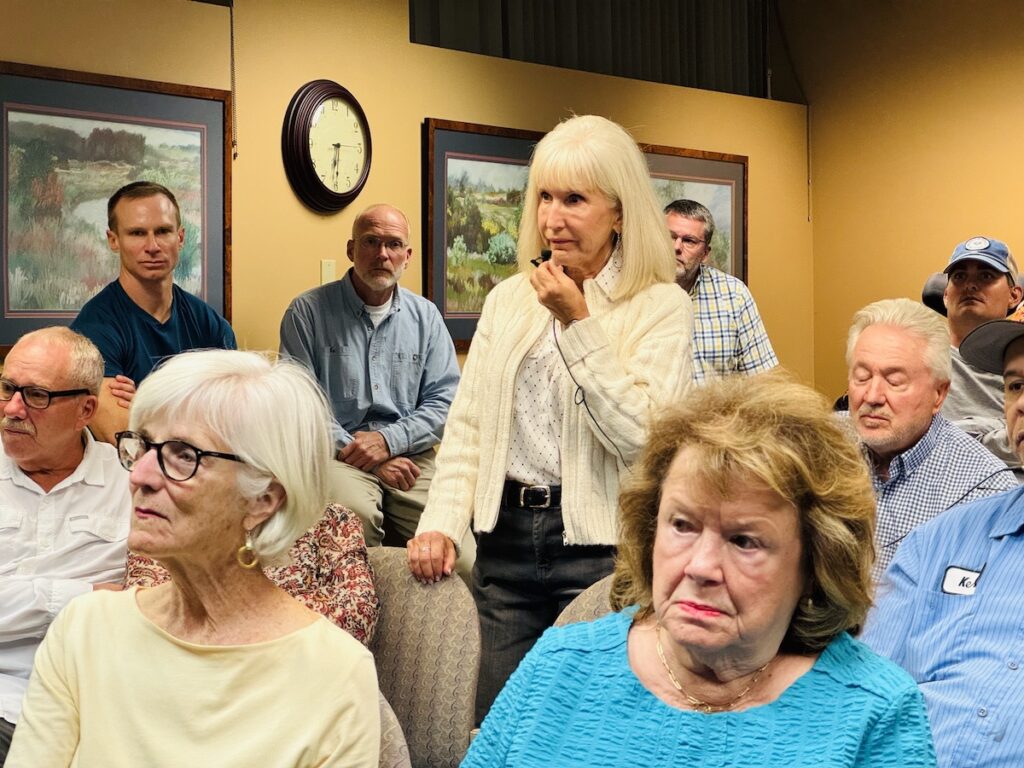
Helen Cayce, a nurse practitioner, pushed for more information.
“We want to thank you for everything you’ve done to get to this point. I know it’s a hard, hard job for the board,” she said. “However, I don’t want to understand the contract after it’s signed. I don’t want to read it after it’s signed.”
Cayce said the community’s questions were logical and not inappropriate.
She asked, “Are you responsible to us or are you responsible to Deaconess? Are you responsible for answering our questions or are you responsible for holding back information because you signed a nondisclosure agreement?”
Cayce and others also said the deal with Deaconess ought to be called a sale.
“We thought we just had a systems’ problem, a software issue, and suddenly the hospital is being sold,” she said. “It is a sale. It’s not a merger. It’s not an affiliation.”
At several points during the question and answer session, audience members groaned when Carroll and White said they couldn’t provide certain information.
Craig Richardson, a Hopkinsville attorney working with the group Save Jennie Stuart, noted that Deaconess calls this kind of ownership transfer a “member substitution.”
A membership substitution, which is increasingly used between nonprofit hospital systems, occurs when the seller (Jennie Stuart) transfers its ownership to the acquiring hospital (Deaconess), who becomes the new “member.”
“The seller’s corporate structure typically stays intact, but ownership and control shift to the new parent, which also typically becomes liable for the seller’s debts,” Judy Packer-Tursman wrote in a story outlining different types of hospital mergers and acquisitions for Healthcare Dive, an online news outlet. “Often, the nonprofit buyer agrees to continued investment in the facility and medical staff.”
Carroll and White said the hospital requested proposals for either a software upgrade or a strategic partnership from 18 outside entities.
White pressed a few community members to frame their comments as a question. Two speakers, former board member Darrell Gustafson and real estate investor Hal McCoy, were visibly exasperated when White tried to move them along.
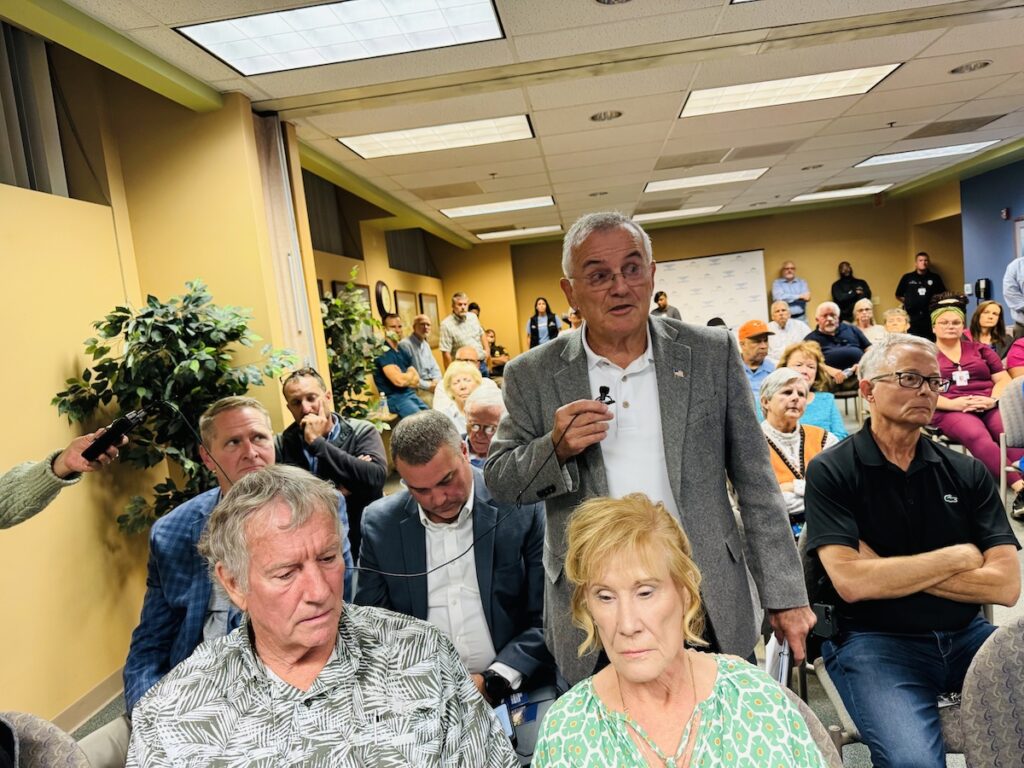
“No, you are not answering my question,” said McCoy, as he tried to get White to say how many outside groups made a presentation to the board to do business with Jennie Stuart.
McCoy added, “If this is a member substitution, why are we giving Deaconess $145 million [in equity]? We’re giving it to them. Do you understand that?”
McCoy said the hospital gave “a canned presentation” but was not answering questions.
Carroll said community members can pose additional questions on the hospital’s website. A list of questions and answers is posted under the “news” section. She said it is possible another open community meeting will be scheduled.
Jennie Stuart representatives also spoke about Deaconess’ other hospitals in Kentucky, mainly at Madisonville and Henderson. They said Deaconess would not attempt to send Jennie Stuart patients to Madisonville if the type of care needed is available in Hopkinsville. They said they believe Jennie Stuart will help offset some of the pressure on Deaconess in Evansville, where officials have said they sometimes have 20 patients in the ER waiting for a room at mid-week.
Questions were raised about current collaborations between Jennie Stuart providers and Vanderbilt University Medical Center. Those will continue, Jennie Stuart representatives said.
Jennie Stuart owns medical practices that employ about 75% of the physicians in Hopkinsville. If the Deaconess deal passes, those physicians would be working in Deaconess practices. Robinson said that would not result in physicians sending patients to Madisonville or Evansville if they preferred going to Nashville or somewhere else. The physicians have “autonomy,” he said.
“The goal here is to expand the care we are providing, not narrow it down,” said Robinson.
Jennie Stuart employs 900 full-time workers, making it one of Hopkinsville’s largest employers.
Jennifer P. Brown is co-founder, publisher and editor of Hoptown Chronicle. You can reach her at editor@hoptownchronicle.org. Brown was a reporter and editor at the Kentucky New Era, where she worked for 30 years. She is a co-chair of the national advisory board to the Institute for Rural Journalism and Community Issues, governing board past president for the Kentucky Historical Society, and co-founder of the Kentucky Open Government Coalition. She serves on the Hopkinsville History Foundation's board.
